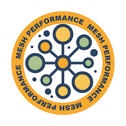What Is MASLD? The New Name for Fatty Liver Disease (and Why It Actually Matters)
Until recently, doctors called this condition Nonalcoholic Fatty Liver Disease (NAFLD). The problem was, defining a disease by what it isn’t didn’t make much sense. It also risked being stigmatising and could confuse people who assumed “fatty” meant ‘lazy’ or ‘unhealthy’ by choice. The international medical community agreed it was time for a rethink.
Bally Parekh MSc RD
5/23/20252 min read
When it comes to liver disease, you’d be forgiven for thinking the biggest issue is whether you overdo it on a Friday night. The truth is, the most common liver condition worldwide now has nothing to do with alcohol and everything to do with our modern lifestyles. And yes, your Deliveroo habit might be part of the problem.
Let’s talk about Metabolic Dysfunction-Associated Steatotic Liver Disease, or MASLD, and why it’s more than just a name change.
What is MASLD and Why the Name Change?
Until recently, doctors called this condition Nonalcoholic Fatty Liver Disease (NAFLD). The problem was, defining a disease by what it isn’t didn’t make much sense. It also risked being stigmatising and could confuse people who assumed “fatty” meant ‘lazy’ or ‘unhealthy’ by choice. The international medical community agreed it was time for a rethink.
Now known as MASLD, the condition is characterised by fat build-up in the liver, alongside at least one metabolic health issue such as:
Type 2 diabetes
High blood pressure
High triglycerides
Low HDL cholesterol
Being overweight or obese
This new term focuses on the metabolic drivers of liver disease, recognising that liver health doesn’t exist in a vacuum. It reframes MASLD as a primary metabolic disorder rather than something defined by alcohol intake alone.
Fun fact: they even created a new category called Metabolic and Alcohol-Related Liver Disease (MetALD) for people with metabolic risk factors who also drink above safe limits. Because, let’s face it, life’s rarely that tidy.
Why MASLD Matters for Public Health
MASLD affects over one in four adults worldwide, and those numbers are only climbing. It’s now the most common cause of chronic liver disease globally and is rapidly becoming a top reason for liver transplants.
But here’s the thing: MASLD isn’t just about the liver. It increases your risk of:
Type 2 diabetes
Heart disease (the biggest killer in people with MASLD)
Kidney disease
Certain cancers
This makes it more than a liver problem. It’s the visible tip of a much bigger metabolic iceberg. Managing it properly means tackling your overall metabolic health, not just what your latest liver blood test says.
What Can You Do About It?
The most effective treatment is lifestyle-based, which means a combination of:
Nutrient-dense, balanced eating
Regular physical activity
Weight management where appropriate
Regular health checks for blood pressure, glucose, and cholesterol
And before you ask, no, drinking eight detox teas a day won’t fix it.
Summary
MASLD is the new face of fatty liver disease. It’s a better, fairer, and more scientifically accurate label that helps connect liver disease to broader metabolic health risks. The good news? It’s manageable, and you don’t have to do it alone.
And if your current health strategy involves hoping for the best, consider this your nudge to get it sorted.
How can I help you?
If you’d like expert, tailored support, book a consultation today at The Liver Nutrition Clinic. I’m Bally Parekh, MSc RD, Specialist Liver Dietitian, and I’d love to help you stay stronger for longer.
How can we help
At MESH Performance, Specialist Liver Dietitian Bally Parekh MSc. RD provides evidence-based nutrition support for those living with liver conditions. Our approach focuses on:
Sarcopenia and frailty assessments
Maintaining and rebuilding muscle to reduce the risk of frailty and malnutrition
Implementing targeted dietary strategies to support overall well-being and quality of life
Optimising nutrition to prevent deficiencies and support energy level
Managing a liver condition comes with challenges, but the right nutrition can make a real difference. We're here to provide practical support—let’s get started.


Get in touch
info@mesh-performance.com



